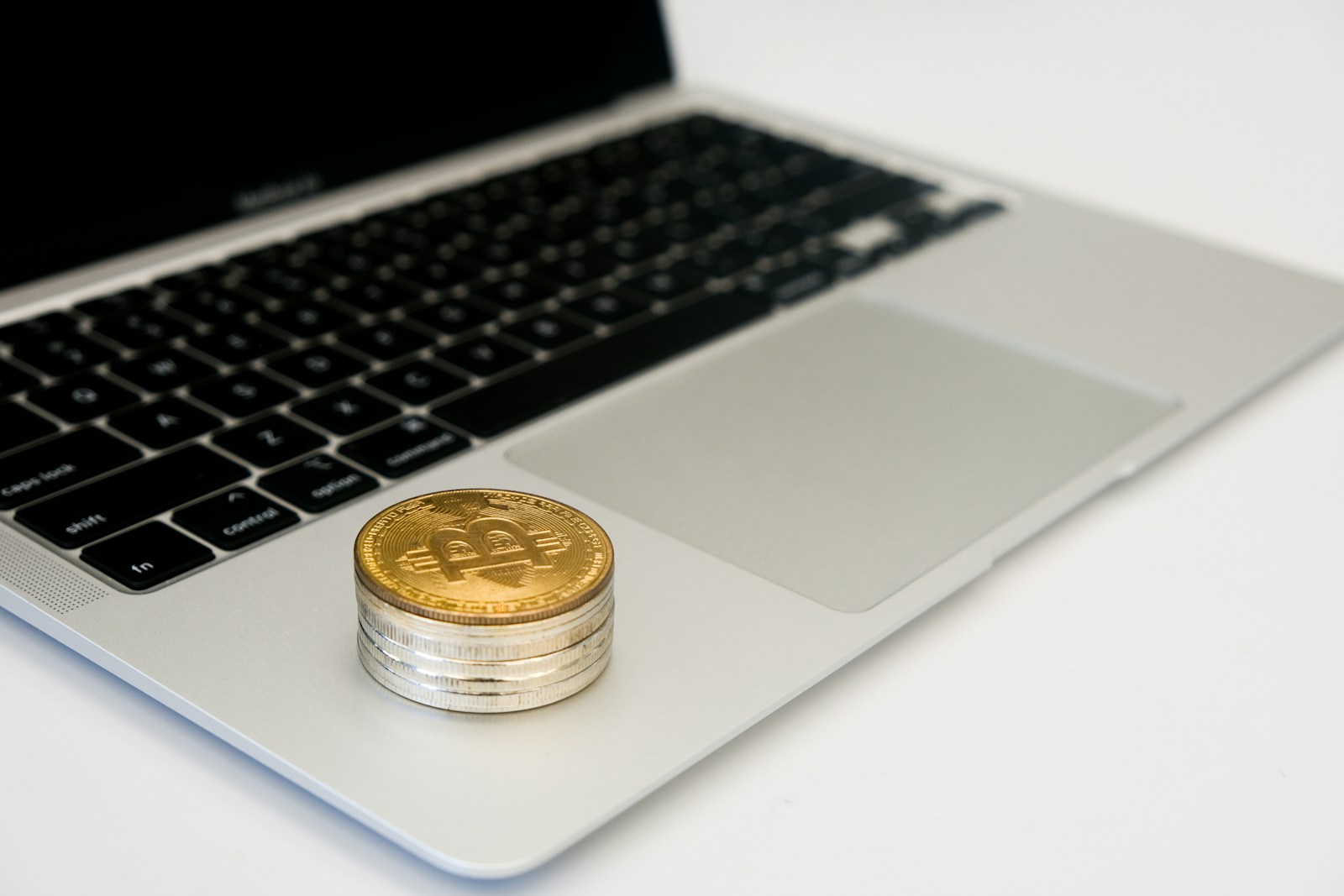Welcome to the world of digital currency, where the traditional norms of money exchange are evolving at the speed of technology. In this section, we delve into how Bitcoin is reshaping the payment landscape for freelancers.
Explanation of Bitcoin
Imagine a currency that isn’t controlled by a bank or government but by a network of computers across the globe. This is Bitcoin. Created in 2009 by an anonymous entity known as Satoshi Nakamoto, Bitcoin is the first decentralized digital currency. It allows for peer-to-peer transactions without the need for intermediaries like banks. Every transaction is securely recorded on a public ledger called the blockchain, ensuring transparency and security. As a freelancer, understanding Bitcoin is crucial because it represents not just a currency but also a revolutionary technology that’s changing how we think about money.
Rise of Bitcoin in Freelancing
The freelance industry is increasingly embracing Bitcoin, and for good reason. For freelancers who often work with clients from different parts of the world, Bitcoin offers an attractive alternative to high fees and slow processing times associated with traditional banking. The trend is clear: more and more freelancers are adding Bitcoin to their list of accepted payment methods. This shift is driven by the benefits Bitcoin brings—lower transaction fees, faster payments, and reduced risk of chargebacks, to name a few. As such, staying ahead of the curve by accommodating clients who prefer digital currencies can set you apart in the competitive freelance market.
Importance of Understanding Bitcoin Payments
Why should freelancers bother learning about Bitcoin payments? Simply put, knowledge is power. Understanding the ins and outs of receiving Bitcoin can open up new opportunities for your freelance business. It’s not just about the ‘cool’ factor or being on the cutting edge; it’s about practical benefits. By knowing how to handle Bitcoin payments, you can tap into a growing customer base, improve cash flow, and enhance your digital security. With its increasing acceptance, getting comfortable with Bitcoin now can help you adapt to the future of freelance payments with ease.
Understanding Bitcoin Wallets and Addresses
In the realm of Bitcoin, securing your digital currency is as crucial as safeguarding cash in your physical wallet. Let’s delve into the various types of Bitcoin wallets available, a critical first step for freelancers ready to accept cryptocurrency.

Types of Bitcoin Wallets
Bitcoin wallets come in several forms, each offering different levels of convenience and security. Software wallets are applications you can download on your computer or smartphone. They’re user-friendly and easily accessible but keep in mind that they’re only as secure as the device they’re on. Hardware wallets, on the other hand, are physical devices that store your Bitcoin offline, making them less vulnerable to online hacking attempts. Lastly, paper wallets are quite literally a printed piece of paper with your Bitcoin address and private key. They’re entirely offline and thus very secure, but they can be easily damaged or lost if not cared for properly.
Generating a Bitcoin Address
To receive Bitcoin payments, you’ll need a Bitcoin address—a unique identifier assigned to you. Here’s a simple guide to creating one:
- Select a Bitcoin wallet that suits your needs based on the types discussed above.
- Install or set up your chosen wallet following the provider’s instructions.
- Once your wallet is ready, find the option to ‘Receive’ Bitcoin.
- The wallet will generate a new Bitcoin address for you, often presented as a QR code and a long string of numbers and letters.
- Share this address with your clients to start receiving payments.
Remember, each transaction should ideally use a new Bitcoin address to enhance privacy and security.
Security Considerations
Your Bitcoin wallet is akin to a digital bank account—security is paramount. Safeguarding your private keys, the passwords that grant access to your Bitcoins, is essential. If someone gains unauthorized access to your private keys, they can steal your funds. To prevent this, consider the following tips:
- Use strong, unique passwords for your software wallets.
- Keep hardware wallets in a safe and secure location.
- Make backups of your wallet to protect against accidental loss.
- Consider using multi-signature wallets, which require more than one key to authorize a transaction, adding an extra layer of security.
- Stay vigilant against phishing attempts and malware.
By taking these precautions, you significantly reduce the risk of compromising your Bitcoin funds.
Integrating Bitcoin Payment Options
So, you’ve got your Bitcoin wallet sorted, and you’re ready to start accepting digital gold for your freelancing gigs. But how do you actually get those shiny coins into your wallet? That’s where integrating Bitcoin payment options comes into play.
Platforms for Bitcoin Payments
Several platforms have emerged as popular choices for freelancers looking to accept Bitcoin payments. These platforms often simplify the process, providing both security and convenience. Coinbase Commerce is a widely used service that allows you to receive cryptocurrencies directly into your wallet. Then there’s BitPay, which not only processes payments but also offers a debit card option, converting Bitcoin into spendable cash in real-time. Additionally, BTCPay Server stands out for the tech-savvy crowd, an open-source alternative that gives you full control over your transactions with no middleman.
Setting up Payment Gateways
Now, let’s walk through setting up a Bitcoin payment gateway on your website or invoice – step by simple step. First, select a Bitcoin payment service provider that resonates with your needs. Once you’ve made your pick, you’ll typically create an account and follow the provider’s setup process. This usually involves configuring some settings, such as specifying the wallet address where payments should be sent, and then integrating their payment widget or API into your website. If you’re invoicing, many providers offer tools to include a Bitcoin payment option directly on the invoice. For example, with Coinbase Commerce, you’d click ‘Create a charge’, input the transaction details, and they provide you with a link to embed in your invoice. As easy as pie!
Remember, accuracy is key. Double-check that your wallet address is correct before saving any changes. You wouldn’t want your hard-earned Bitcoin going astray.
Advantages of Bitcoin Payments
Embracing Bitcoin opens up a world of perks for freelancers. One of the most significant advantages is lower transaction fees. Traditional payment methods can eat into your profits with their high fees, but Bitcoin transactions are typically much cheaper, allowing you to keep more of what you make.
Another benefit is global accessibility. With Bitcoin, it doesn’t matter if your client is across the street or across the globe; the process is the same, and there are no currency conversion headaches or international transaction fees. Lastly, Bitcoin payments can be faster than bank transfers, which sometimes take days to clear. With Bitcoin, once the network confirms the transaction, the funds are yours to use.
However, it’s not all rainbows and butterflies. The value of Bitcoin can be volatile, and it’s something to consider when accepting it as payment. To mitigate this risk, some freelancers convert their Bitcoin to fiat currency immediately after receiving it to lock in the rate. Others might hold onto their Bitcoin, treating it as an investment and potentially profiting from favorable exchange rate movements down the line. It’s a personal choice based on your risk tolerance and financial strategy.
In essence, integrating Bitcoin payments into your freelance business can be a smart move. Not only does it position you at the forefront of technological adoption, but it also offers practical benefits that can enhance your bottom line.
Managing and Utilizing Received Bitcoin Payments
Once you’ve navigated the integration of Bitcoin into your freelancing payment options, a new chapter begins: effectively managing and utilizing your digital earnings. But how can you keep track of these transactions, and what are the implications for your finances, particularly at tax time?
Tracking Bitcoin Transactions
In the decentralized world of Bitcoin, every transaction is recorded on a public ledger known as the blockchain. Freelancers can use blockchain explorers—tools that allow anyone to view transaction details—to track their Bitcoin payments. Sites like Blockchain.com or Block Explorer provide real-time tracking capabilities. Simply enter your unique Bitcoin address, and you can see the status of your transactions, including confirmations from the network.

Why is this important? Well, it ensures that you have a transparent way to verify that payments have been sent and received. Plus, it’s a great way to manage your digital funds by keeping an eye on your payment history and current balance, all without the need for a traditional bank statement.
Tax Implications
While Bitcoin offers a novel approach to receiving payments, it doesn’t exempt you from the tax obligations that come with income. The IRS treats virtual currencies like Bitcoin as property for tax purposes, meaning that every transaction may be a taxable event. When you’re paid in Bitcoin, it’s akin to being paid in any other kind of property or asset. You’ll need to keep records of the value of the Bitcoin at the time of receipt, which will form the basis for calculating gains or losses when you exchange it for fiat currency or use it to make purchases.
It’s essential to consult with a tax professional who understands cryptocurrency transactions. They can guide you through the reporting process and help you comply with local regulations. As a freelancer, proper bookkeeping is vital; tools like CryptoTrader.Tax and CoinTracker can integrate with your Bitcoin wallet to automate the tracking of gains and losses for tax purposes.
Utilizing Bitcoin Earnings
Now that you’ve got a handle on tracking and taxes, let’s talk about making the most of your Bitcoin earnings. The volatile nature of Bitcoin means its value against fiat currencies can fluctuate widely. So, what should you do with your crypto earnings?
- If you believe in the long-term increase in value of Bitcoin, you might choose to hold onto it as an investment.
- On the other hand, if you’re wary of volatility or need immediate cash, converting Bitcoin to your local currency through exchanges like Coinbase or Kraken is a practical choice.
- Some freelancers use a portion of their earnings to pay for services or products from vendors who accept Bitcoin, thereby streamlining their business expenses.
- And for those looking to spread risk, diversifying by converting Bitcoin into other cryptocurrencies or assets could be a strategic move.
Whichever route you take, ensure that you have a strategy in place that aligns with your financial goals and risk tolerance. And remember, always keep security in mind; even when managing your earnings, protecting your assets with strong passwords and considering cold storage solutions for significant amounts is wise.
Conclusion and Future Outlook
We’ve ventured through the intricacies of Bitcoin payments, and as we wrap up this guide, let’s recap the crucial nuggets of wisdom for freelancers. As digital currencies continue to carve their niche in the global economy, understanding how to receive and manage Bitcoin is becoming more than a novel skill—it’s a competitive edge. We’ve covered the essentials, from grasping the basics of Bitcoin wallets and addresses to integrating payment options into your freelance business.
Recap of Key Takeaways
Our journey began with an introduction to Bitcoin, where its role as a pioneering digital currency was highlighted. We then observed the rising trend of Bitcoin being adopted by freelancers globally, which underscored the importance of understanding cryptocurrency. In unpacking Bitcoin wallets, we learned about their types and the steps to generate a receiving address. Moreover, we touched on the vital practice of securing these wallets to ensure our funds remain safe from unauthorized access.
Moving forward, we delved into the practicalities of integrating Bitcoin payment options, discussing platforms that simplify these transactions and the undeniable advantages they bring, such as reduced fees and borderless payments. Lastly, we navigated the management of Bitcoin earnings, touching on tracking transactions, tax implications, and diverse strategies for utilizing Bitcoin, whether it’s holding as an investment or converting to traditional currency.
Embracing Cryptocurrency in Freelancing
The adoption of cryptocurrency in freelancing isn’t just a fleeting trend; it’s a sign of a broader shift towards a digital-first economy. Freelancers who embrace this change position themselves at the forefront of innovation, catering to clients worldwide with ease and efficiency. The potential impact is colossal—with cryptocurrency, payment barriers are dissolving, allowing freelancers to operate on a truly global scale. This exploration of Bitcoin payments is only the beginning. With each passing day, new developments in blockchain technology and digital currencies are emerging, promising even more opportunities for savvy freelancers.
Call-to-Action
Now that you’re armed with knowledge, it’s time to turn learning into action. If you’ve been receiving Bitcoin payments, what has your experience been like? Have you faced challenges or discovered best practices that could benefit others? Sharing your stories can pave the way for collective growth and learning. And if there are topics you’re curious about or need more clarity on, don’t hesitate to reach out. Your feedback not only helps us tailor our content but also fosters a community of informed, empowered freelancers ready to thrive in the digital age.
So, dive into the world of Bitcoin payments and see where this adventure takes your freelancing career. Embrace the change, explore uncharted territories, and let’s innovate together. After all, the future belongs


